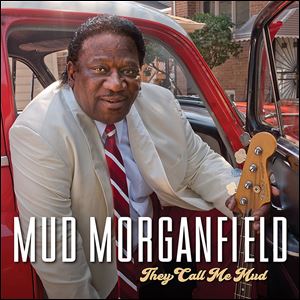
WEEKENDER I SOUNDS
Urban pushes boundaries with ‘Graffiti U’
5/10/2018

Keith Urban performs at the Huntington Center in downtown Toledo in 2016.
The Blade/Andy Morrison
Buy This Image

Keith Urban performs at the Huntington Center in downtown Toledo in 2016.
GRAFFITI U
Keith Urban (Hit Red / Capitol Nashville)
Watch Keith Urban play guitar in concert and you see an artist transported by the music he makes.
Listen to Urban sing, though, and he seems more restrained, especially on his new album, Graffiti U, and its equally eclectic predecessor, the hit-filled Ripcord. That’s not to say Grafitti U isn’t well-crafted, though, or that his goal of weaving pop, rock, and dance music into country isn’t worthy.
The current single, “Coming Home,” shows how it all works, with Urban sampling a bit of Merle Haggard’s “Mama Tried” to put some twang in the dance groove. When Grammy-nominated pop singer-songwriter Julia Michaels joins in, it becomes a sweetly effective combination of styles. On “Never Comin’ Down,” Urban moves from funky verses to a banjo-picking, good-time chorus and even takes an Afrobeat detour in the bridge. The lovely “Same Heart” starts off with some icy electronics in the verses before warming up in the chorus.
However, sometimes you can almost hear Urban’s anxiety as he leaves his comfort zone. He seems like he’s trying hard to keep up on “Way Too Long,” struggling to hit notes in the poppier keys and tempos that co-writers Michaels and Nate Ruess usually use. On “Parallel Line,” co-written by Michaels and Ed Sheeran, Urban seems wary of the sparseness of the song and fills all the space with countermelodies and echoing vocals that detract from the immediacy and rawness of Sheeran’s best work. Similarly, the impact of Urban’s #MeToo anthem “Female” is blunted by the torrent of images in the chorus while the stark verses made his point so powerfully.
Trying new things is admirable. But when Urban is on familiar ground, as he is on the future singalong “Steal My Thunder,” he shows how far his experiments have to go to reach his usual stellar level.
— GLENN GAMBOA, Newsday

'44/876' by Sting & Shaggy.
44/876
Sting and Shaggy (A&M/Interscope)
So, Sting may have eschewed the punky-reggae that made ). He hasn’t, though, apparently forgotten Jamaican music’s influence altogether. Enter Shaggy, the pleasantly guttural, Kingston-born dancehall toaster and pop-reggae songster.57th & 9thhim famous for more recent forays into albums of dumb children’s rhymes, lame lute music, grey shipbuilding songs, and sprightly straight-ahead rock (2017’s
It isn’t always pretty. Along with ham-handedly evoking “the ghost of Bob Marley that haunts me to this day” on the jittery title track, Sting all but confiscates “Wait in Vain” for the team’s so-called original cut “Waiting for the Break of Day.” Luckily, Sting is a lovely, pliable bassist who hasn’t lost his sense of reggae’s pernicious pulse, and his partner in rhyme is a sly and silly lyricist with sex on his mind. “To get your body was my goal/But you fit perfectly in the wifey role,” bellows Shaggy on the woozily jazzy “22nd Street.” On “Just One Lifetime,” however, the twosome pull out all their happiest, most harmonious signature tricks — Sting’s wobbly croon, Shaggy’s growly leer — for a funny sort-of triumph.
–A.D. AMOROSI, Philadelphia Inquirer

'They Call Me Mud,' by Mud Morganfield.
THEY CALL ME MUD
Mud Morganfield (Severn Records)
Larry “Mud” Morganfield shows more growth as a solid Chicago bluesman on this, his third album on the Severn label and fourth overall.
The deeply baritone-voiced musician is the oldest son of blues legend Muddy Waters, aka McKinley Morganfield, who died in 1983. And while comparisons are both inevitable and unfair, Mud seems to get more comfortable exploring his roots and then some, influenced not only by Chicago blues but also soul, Motown, and rhythm & blues.
On this disc, he wrote 10 of the album’s 12 songs, all roots-worthy, gritty, and from the heart. The other two songs — “Howlin’ Wolf” and “Can’Get No Grindin’” — came from his famous father’s song catalog.
Morganfield is a bassist and has Rick Kreher on guitar. His special guests include blues harmonica legend Billy Branch. There’s also a horn section on several tracks and a duet, “Who Loves You,” in which Mud and his gospel-influenced daughter, Lashunda Williams, do a sweet duet.
— TOM HENRY, The Blade